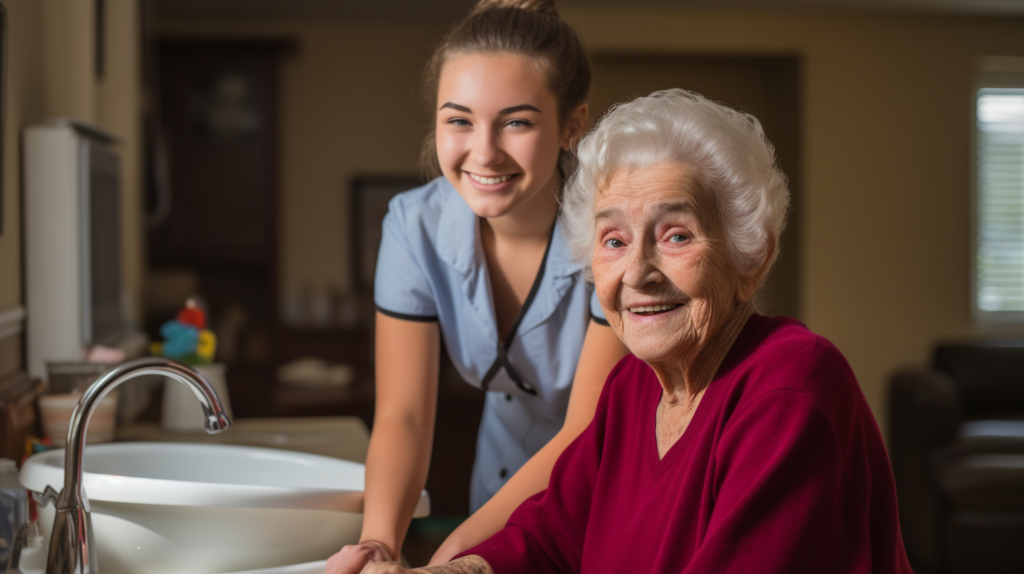
Spring is here, and with it are spring allergy symptoms. For seniors who are already dealing with medical conditions, spring allergy symptoms can be miserable. Severe spring allergy symptoms can make existing medical conditions worse.
For example, seniors who are already struggling with dry or irritated eyes can also get irritated, dry, or red eyes from spring allergies. The most common seasonal allergy symptoms that seniors get are:
- Sneezing
- Runny or Stuffy Nose
- Itchy or Watery Eyes
- Postnasal Drip
- Itchy Throat or Ears
- Cough
- Fatigue
- Headache
- Wheezing or Shortness of Breath
- Skin Symptoms
Home care can help seniors who are battling spring allergy symptoms. A home care provider can keep the house clean and dust-free to avoid making allergy symptoms worse. And, a home care provider can run errands, do the shopping, and do other outdoor tasks in the spring so that your senior parent doesn’t have to go outside until the pollen calms down.
Some other things seniors can do to manage seasonal allergy symptoms are:
Drink More Water
Drinking water can prevent dry mouth, dehydration, and dry eyes. It can also help lubricate the sinuses and throat so that postnasal drip is less severe. Most seniors are chronically dehydrated, so during the spring, they should really make an effort to drink more water.
Wash Hands
Allergens can get on seniors’ hands and stay there. When seniors go outside or come into contact with someone or something that has been outside, they can get pollen or allergens on their hands. If they touch their face, wipe their eyes, or put their hands near their mouth, they can trigger allergy symptoms. A great way to avoid this is for seniors to wash their hands frequently.
Keep Linens Clean
Soft furnishings like pillows, blankets, and mattresses are like magnets for allergens. Seniors should have allergen-proof covers for their mattresses and pillows. Sheets and blankets should be washed weekly in hot water to reduce allergens and kill bacteria. If your senior parent has a hard time washing heavy linens, home care providers can help. With a home care provider doing the laundry, your senior parent will have clean, fresh, allergen-free bedding.
Stay Indoors
Your senior parent may want to go outdoors now that the sun is out more and the weather is warm. However, outdoor time should be limited until allergy season has passed. Limiting time outdoors will help minimize the amount of allergy symptoms your senior parent has to deal with.
Take Shoes Off Right Away
When your senior parents come in from outside, they should take off their shoes and put on indoor slippers or house shoes right away. If possible, they should leave their outdoor shoes outdoors. That will prevent allergens and pollens from being brought into the house on their shoes. You should also take off your shoes when you enter the home to avoid bringing in allergens.
Enlisting the help of a home care agency can help seniors better manage everyday tasks that add to their cleanliness and health.
If you or an aging loved one are considering Home Care in Marlboro Township, NJ, please contact the caring staff at Lares Home Care (732) 334-3323.
- Why Seniors Need Companion Care - May 22, 2025
- Home Care Assistance Can Help Your Senior Parent Recover After A Heart Attack - May 7, 2025
- How Seniors Can Lose Weight Without Exercising - April 28, 2025



